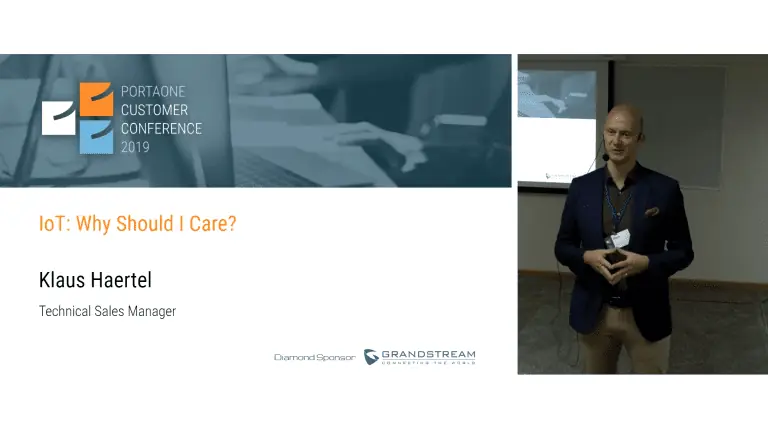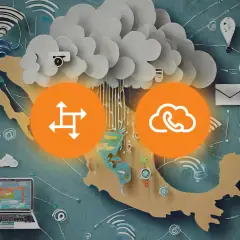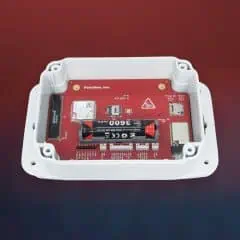You’ve probably noticed that revenue opportunities in voice and data have pretty much stopped growing. That’s why IoT and all the new revenue streams it opens up are so important for telcos. And even beyond revenue, IoT allows you to give more than just connectivity services – you can use it to solve real, everyday problems for your customers, like helping seniors be safe, locating free parking spots for drivers in a busy megapolis, and more ways to become indispensable that you’ll hear about in this video.

You’ll also learn how not to become one of the 75% of new IoT services that get stuck in the pilot phase – and all because they focus on the technology rather than on solving these real-life problems. Klaus will run you through the IoT areas that offer the most opportunities, how you can gain the best competitive edge (spoiler: it’s not about price or connectivity!), and how to create the “secret sauce” that will allow you to offer a full-stack service (another hint: it has everything to do with PortaBilling).
Video transcript
Host: Klaus is the representative of our most remote office, in Canada. He’s probably had the longest way to travel to this conference, with exception of our honored guest chairman from Australia and Damien from Brazil. Klaus is our expert in IoT solutions and his presentation today is focused on that. Please welcome Klaus Haertel.
IoT: why should we care?
Klaus: Why does everyone keep talking about IoT? Why is it so important, and why do we keep hearing about it? That’s what I want to talk about, the three points that I’d like to highlight.
First of all: “Why should I care?” Well, if you are stuck in the 1990s in your fashion sense and your idea of modern technology, then you probably shouldn’t care about IoT, because it will most likely not be in your interest.
But since we’re all working in technology, we should most likely care about it. The existing revenue opportunities in voice and data are not growing anymore, and this is actually something that Roman, Michael, and I, and all my colleagues who are going to trade shows around the world, keep hearing about.
Everyone keeps talking about voice and data, and it’s still quite profitable of course. And there are niches that still go very well, such as UCaaS for instance, and especially services to business customers. So of course it’s still profitable, but it doesn’t have the profitability it used to have.
And the second point is, of course, that IoT allows those of us in telecom to actually reap opportunities to solve real-world problems. It’s obviously a human need to communicate with one another. But IoT allows us in telecom to really solve those issues that are beyond communication – and I’ll give you a couple of examples of those soon.
And the third point is that you simply can’t afford not to. With the ubiquitousness of the Internet, all devices will be connected to the Internet. So IoT, whether you like it or not, won’t go away.
What should I focus on?
So that was the why. Now let’s talk about the what.
Here are a couple of the things that I have found in my research, and in talking to customers around the world, like when I recently went to an event in Johannesburg. There are quite a lot of IoT projects currently ongoing, but what research has found is that 75% of these IoT projects are stuck in the pilot phase.
See, a lot of the time, there is a focus on the technology. A prime example is, for instance, with 5G. The first thing a business might show you is often very gimmicky, like what the download speed of the phone is.
Well, nobody really cares about the download speed.
People care about the actual things that you can do with it, the real-world applications. So this is my point here: don’t focus on the technology, don’t focus on this sort of gimmicky approach or technology, or how your fridge can order your milk when it runs out or tricks like that. Yeah, it’s nice. But it’s most likely not the main selling point for IoT.
Instead, what research has found proves best is not to think too much about technology, but to think about the business opportunity first. About the monetization. About what problems you’re trying to solve. That would be a better approach.
Remember: IoT doesn’t just impact communications, it impacts pretty much all areas of human existence. Industrial, mining, agricultural, finance, logistics: there are IoT applications in each of these. With logistics, for example, we would have vehicle tracking.
In finance, there was a very good example that I learned about at the conference in South Africa, where in poorer countries people can now get solar panels on their roof. And, typically, they would have to pay for it.
But with IoT and sensors and the measuring and the remote shutoff capabilities, there is a model now that is not focused on a technology, but it is instead a business model where they get the solar panels for free and, every month, they make small payments. And they can therefore also kind of build up their credit, in a sense.
For consumer applications, security, and safety for seniors is a big one that we keep hearing about. And that impacts healthcare: like remote sensors for blood pressure or activity sensors in your house. It allows senior citizens to continue living in their home and still be monitored either by their loved ones or by their care providers or by their doctors, even if they’re not on site. That’s just another example of how IoT can really impact real-world problems.
In terms of public service, there is the smart city transportation type of solutions. There was one good example that I saw, for instance, about parking. In New York City, they have found that 30% of traffic is actually cars that are looking for parking spots. So one solution that people came up with using IoT is that you can see which parking spots are available in real-time and always updated.
How do I get started?
Now I get to the how. There are usually three parts of IoT. There’s the connectivity, the IoT platform, and then the business logic, or maybe analytics.
So connectivity is just one aspect. If your value proposition is just the connectivity, that may be okay for now, but it’s also very, very easy for your customers to switch you out with another telco provider if they provide just slightly better pricing. So that is most likely not a winning combination if you’re building a medium- or long-term business proposition.
Focusing on the connectivity only will simply lead to competition on price, and you’ll most likely not succeed in the long-term with that.
Instead, what we believe will be a better approach is to have a full-stack vision or full-stack approach, with both the IoT platform and the business logic. And this is where we come in. PortaBilling from PortaOne will perform the “secret sauce” of the value-added things that you do in IoT.
Connectivity is obviously still important, but what’s actually more important is the software aspect on top of it – what you actually do with it. This is where you can provide a winning combination to your customers in a long-term way.
Here’s one example of this value-added service, some optimization. One idea I’ve kept hearing about over a couple of phone calls lately is for when you have a thousand SIM cards outstanding and maybe one subscriber only uses 500 megabytes and the other subscribers are using 1.5 gigabytes. In that case, typically he or she would have to top up because let’s say the limit is at 1 gig from your wholesale provider.
Instead, what you could do is actually transfer data from those guys where you know they aren’t using all of their data, and you give it to the other customer. There’s some pretty smart and clever things that you can do, and that’s obviously all sitting in the software layer in the application.
To summarize, we see IoT as a great opportunity for many of you. Our advice, my advice, would be to at least start thinking about it. It’s maybe not something that you’ll launch next month, but it might be something that will become very important very soon.
So with us as agile software developers and you as agile providers, that will create a natural advantage. Because when we spoke to the MNOs in South Africa, nobody had the answer. Everyone is looking at how you can innovate, but now you have the advantage of being able to move much quicker than the MNO.
Thank you.
Interested in learning more about how PortaOne can help you with your IoT billing needs? Contact us for more details.


















